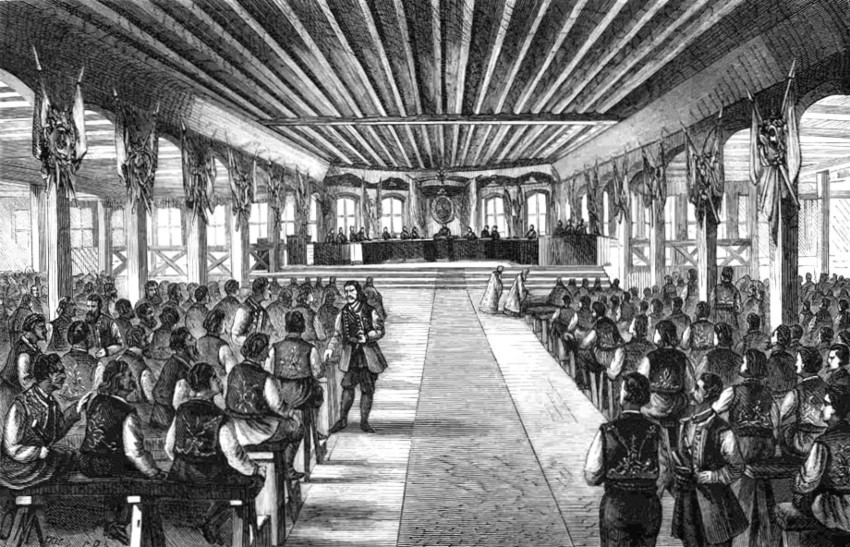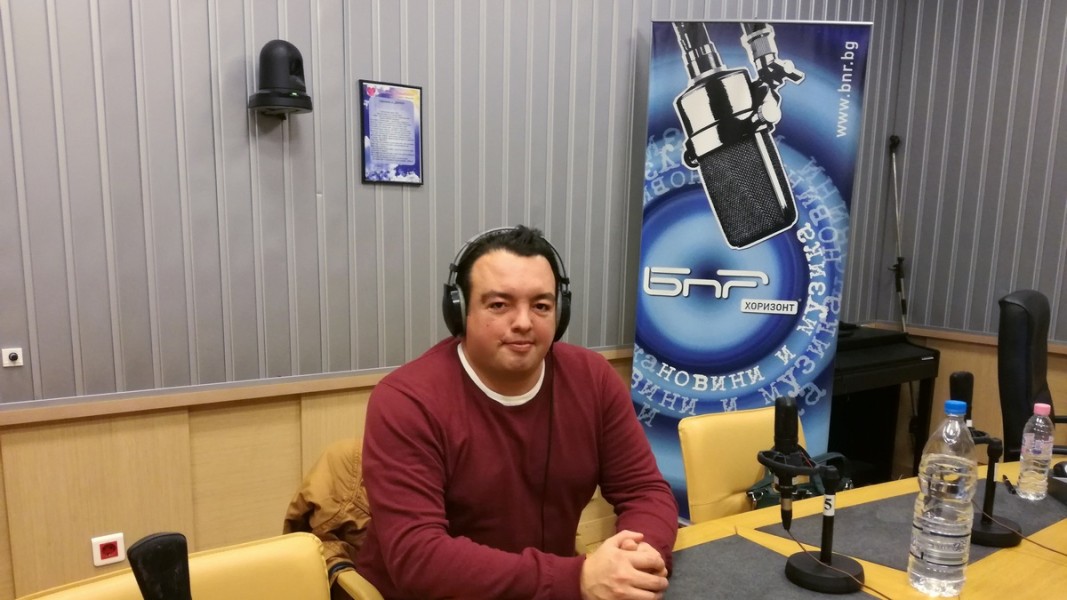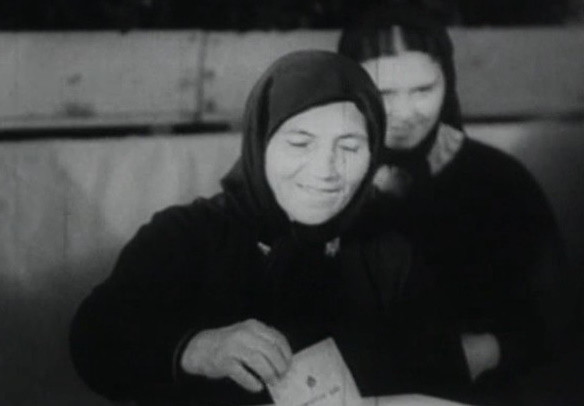Elections for the 45th National Assembly of Bulgaria are scheduled for 4 April, the 10th time people in the country are going to cast their vote for an regular national assembly since the start of democratic change in Bulgaria more than 30 years ago.
Even though the country’s democratic development was put on hold for more than 40 years during the period of totalitarian rule (1946 – 1989) Bulgarians do have significant experience in voting. The foundations of election voting were laid right after the country’s liberation in 1878. By 1879 Bulgaria had modern election laws based on European standards.

The Constituent Assembly convened in Veliko Turnovo in 1879 gave an impetus for the creation of the modern Bulgarian state and set down the first rules concerning the election of members of parliament in the country. Parliament consisted of 229 MPs, grouped in four categories: chosen by right, in accordance with the post occupied, appointed by the imperial commissioner, elected directly by the people, plus one representative of Rila Monastery, one of the Bulgarian Society in Odessa, and one of the Bulgarian Philanthropic Society in Vienna. They were all responsible for drawing up the first constitution of the country.
“The constitution itself sets down some basic parameters of election law, and more specifically – direct universal suffrage which, as of 1879 had not been universally enforced,” explains Assist. Prof. Svetoslav Zhivkov, PhD, from the Department of History of Bulgaria at Sofia University St. Kliment Ohridski. “The countries which practiced equal and direct electoral right simultaneously were few and far between. What we have is a majority voting system in multi-seat constituencies – at the end of the 19th century that was the most widespread system for turning people’s votes into seats. We do not have the experience of pre-modern (late medieval) representation built on a corporate or class principle, such as curia, curia parliaments etc.”

History bears record that there is often a big difference between written laws and electoral practices which very much depend on the way of thinking, political culture and habits of the public. That was the case until the mid-19th century in southern Europe, even in Great Britain and USA, where party voting machines reigned.
One delicate question at the beginning of Bulgaria’s electoral practice was the formation of the electoral bureaus, the places where the direct voting took place.
“They are the predecessors of today’s electoral commissions – a very important body because it administers the holding of the elections in the field,” Svetoslav Zhivkov goes on to say. “At first glance to begin with everything seemed to be going in an absolutely democratic manner. The voters themselves would gather in the cventre of the district town where the voting took place. And, note this, there were no polling stations. The peasants from the surrounding area would travel 30-40 kilometres to vote. And there, in the town square, the first thing these people would do was to select an electoral commission, then called electoral bureau. In theory that may seem to be the most democratic principle of all – the voters themselves electing the people who would administer the election process. But it was there that clashes occurred, even brawls. And usually it was the strongest or the early risers who prevailed, and they selected who would represent them in the electoral bureau. To begin with there were no requirements for representation of the parties, nor were the parties as such regulated in any way by the law. This set the stage for all kinds of malfeasance and abuse by the bureau, especially when it consisted of members of only one political group. The most frequent instances of malpractice was to add ballots to the ballot boxes.”
Voter turnout at the end of the 19th and the turn of the 20th century was not high either. To begin with it did not exceed 20%. But it should be remembered that at the time, around one-quarter of the entire population was eligible to vote because only men over the age of 21 had the right to vote. “It was only at the elections for the 5th Grand National Assembly in 1911 that voter turnout surpassed 50% for the first time,” says Dr. Svetoslav Zhivkov and adds:

“The first factor that boosted voter turnout was the creation of electoral bureaus which brought voting closer to the people.”
In 1920 the increase in voter turnout was significant (close to 75-80% of the people eligible to vote) something that can be explained with the fact that voting had been made compulsory, with the law setting down fines for non-voters. By way of comparison – at the moment voting is again compulsory for Bulgarian citizens though the law does not set down any sanctions for non-voters.
Bulgaria was among the first countries in the world, and in Europe, to have introduced proportional representation voting. In Part II historian Svetoslav Zhivkov explains why this is so and how the transition from handwritten to printed ballots came about.
To be continued…
Photos: archive and BNT
Truly venerated as the spiritual father and shepherd of the nation, Patriarch Neophyte has passed away. Clerics from the eparchy of Ruse, headed by Neophyte for 19 years, expressed great sorrow with the news of his demise. His Holiness the..
Having to flee one’s home and country and take the long road to an uncertain future – that is what refugees have invariably faced through the years, and for the same reasons. People have to flee because of war or their religious beliefs, their..
A display case with small mirrors is part of an exhibition dedicated to the theme of female beauty in antiquity, presented in the Archaeological Museum in the city of Burgas. The exhibition is entitled "Whims through Antiquity. Look in..
The last and most destructive bombing of Sofia during World War II took place on April 17, 80 years ago. In 1944, on April 17 at..
An innovative museum site opens its doors in the military cemetery near Tutrakan. The "Tutrakan Epopee - 1916" memorial is situated in..
"Man does not know the way to heaven, but the horse does," says an ancient Thracian proverb. That is why the Thracian kings were necessarily sent to the..

+359 2 9336 661
